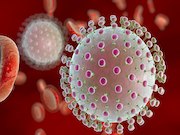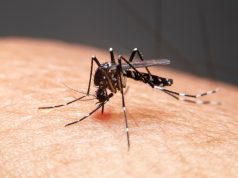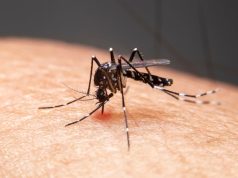Serum ZIKV NS1 protein concentrations are 10-fold lower than corresponding DENV NS1 concentrations
THURSDAY, Sept. 28, 2017 (HealthDay News) — A rapid immunochromatography approach can differentiate dengue virus (DENV) and Zika virus (ZIKV) cases, according to a study published online Sept. 27 in Science Translational Medicine.
Irene Bosch, Ph.D., from the Massachusetts Institute of Technology in Cambridge, and colleagues reported the characterization of monoclonal antibody pairs that had been translated into rapid immunochromatography tests to detect the viral nonstructural 1 (NS1) protein antigen and differentiate the four DENV serotypes and ZIKV. Image processing and data analysis were used for data capture and test result quantification to complement visual test analysis and remove user subjectivity in reading test results.
The researchers found that with a 30-µl serum sample, the sensitivity and specificity of DEN1 to 4 tests and the pan-DENV test, which detects all four dengue serotypes, ranged from 0.76 to 1. Using a 150-µl serum input, the sensitivity and specificity for the ZIKV rapid test were 0.81 and 0.86, respectively. In infected patients, the serum ZIKV NS1 protein concentrations were about 10-fold lower than corresponding DENV NS1 concentrations; in polymerase chain reaction-positive patient urine samples, ZIKV NS1 protein was not detected.
“Our rapid immunochromatography approach and reagents have immediate application in differential clinical diagnosis of acute ZIKV and DENV cases, and the platform can be applied toward developing rapid antigen diagnostics for emerging viruses,” the authors write.
Several authors are inventors on patents filed by the Massachusetts Institute of Technology (MIT). One author applied to license mAb technology from MIT.
Copyright © 2017 HealthDay. All rights reserved.








